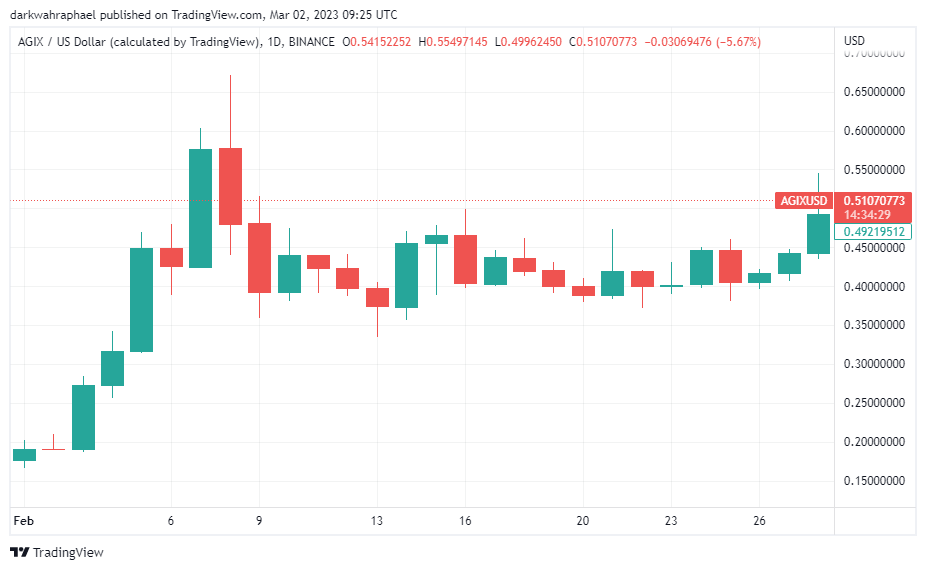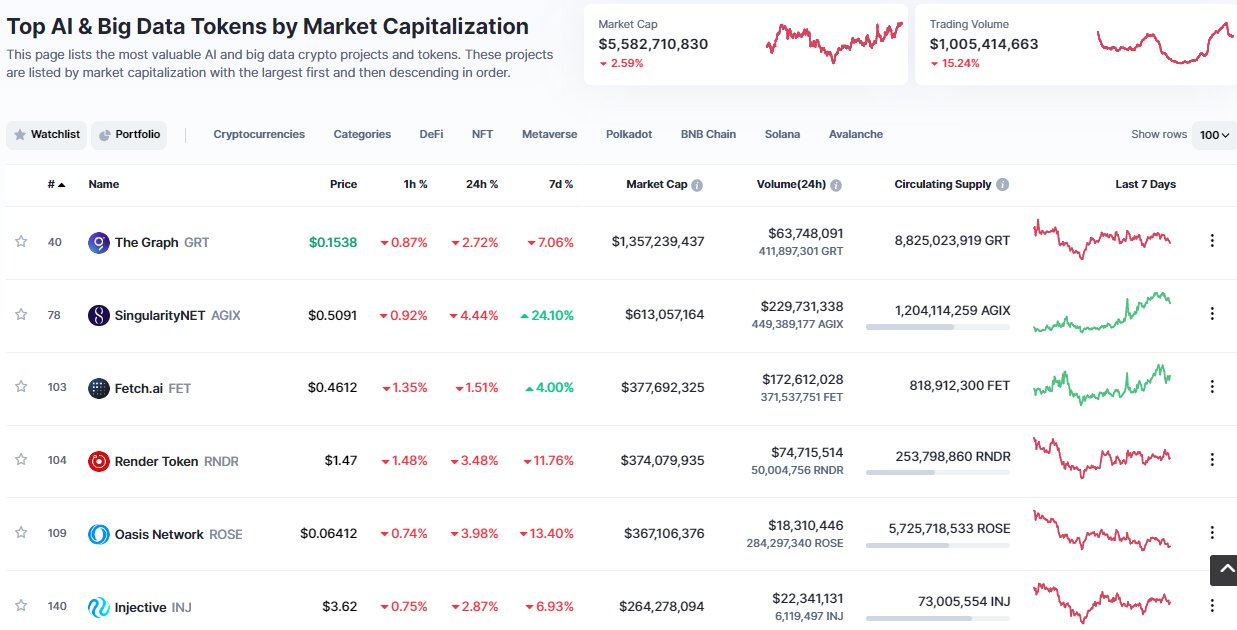The Artificial Intelligence (AI) keyword displays 1.2 billion Google results in just 0.44 seconds. While the term continues to trend across various search engines and social media platforms, one area benefiting directly from the advancement of AI tools and applications is AI tokens.
SingularityNET (AGIX) is among the most popular digital assets operating under the AI banner, with the currency having soared by over 1,300% in 2023.
AGIX is the novel token of SingularityNET, a blockchain-powered platform that allows users to create, share, and monetize services related to the booming AI sector.
The token opened the year on Jan. 1 with a trading price of $0.04603 and a relatively small daily trading volume of $886,504. The token’s market capitalization, meanwhile, was around $52 million.
With the entire crypto economy on an uptrend, AGIX closed January with a much-improved price of $0.177, and in the process brought 285% gains to investors that held the token throughout the first month of the year.
AGIX hits yearly high with Cardano partnership
On Feb. 7, SingularityNET announced that it has partnered with Cardano, one of the protocols purporting to have solved the blockchain trilemma of security, decentralization, and scalability.
SingularityNET will tap into Haskell, a programming language developed by Charles Hoskinson’s project, and it will strengthen high applications for its developers employing MeTTa (Meta Type Talk), a Domain Specific Language (DSL) with strong ties to AI. Essentially, MeTTA allows autonomous interoperability between multiple AI services.
The effect of this announcement was a spike in AGIX’s price to a monthly and yearly high of $0.6637 on Feb. 8 after beginning the month with a trading price of $0.177 and testing a daily low of $0.1672 on the same day.
AGIX spiked by 1,341.89% from Jan. 1 up to Feb. 8 and despite a severe correction largely due to the taking of profits by some traders, the token maintained its momentum and closed the month at a reduced price of $0.4923.
During February, daily trading volumes rose from a low of $35 million to a high of $502 million. Bullish sentiment took market capitalization above the $500 million milestone to $593 million by the end of the second month of 2023. AGIX went up by 178% within 28 days.

Elon Musk’s AI research lab rumour
According to a report by Rowan Cheung, a stakeholder of the AI industry who commands a massive social media following, Elon Musk is developing an AI competitor to ChatGPT.
Cheung said the Tesla mogul has recruited a former researcher at Alphabet’s DeepMind AI to oversee the development of an alternative tool that can compete with ChatGPT. Such news could serve to further promote FOMO as the AI hype cycle accelerates.
Long-term holders of AGIX continue to see their portfolios in green. Despite the ups and downs in a market where more than 20,000 cryptocurrencies compete for the same resources, AGIX has risen by 970% since the start of the year.

As of 10:30 UTC on March 2, AGIX trails only The Graph (GRT) in the ranks of the top AI and big data tokens by market capitalization. It remains the largest AI-powered token by market value.










 and then
and then